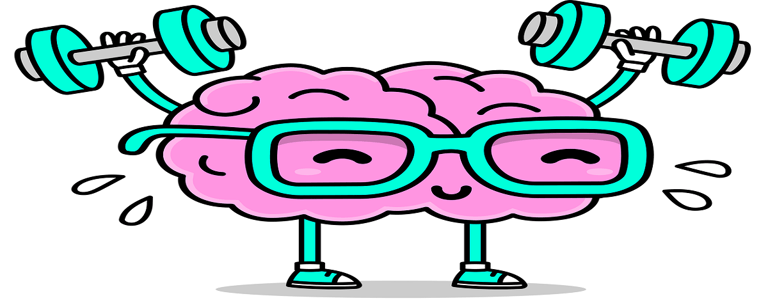How to improve your Sleep quality?
Our body requires proper sleep for good physical and mental health. Lack of sleep can cause weight gain, heart disease, neurological problems, etc. Read this article to learn more!


In our hectic lifestyle, we often understate the importance of good quality sleep. Sleep is as important as exercise and diet for a healthy and fit body.
Sleep gives us the energy to do work. Many important bodily functions take place during sleep. It is generally recommended that we get 8 to 10 hours of sleep daily.
Factors such as late-night dinners, excess mobile usage, anxiety, stress, etc. affect sleep quality.
Sleep deprivation is quite common nowadays among people from all age groups, especially young and working-class leading to various diseases.
In this article, we will discuss the effect of sleep on physical and mental conditions, stages of sleep, and tips for having good sleep.
Table of Content
2. What are the stages of Sleep?
3. What are the benefits of good Sleep?
4. What is the recommended amount of Sleep?
5. What are the reasons for Sleep deprivation?
6. What are the health effects of Sleep deprivation?
7. Foods that can help you Sleep better
What is Sleep?


Sleep is a normal biological process that provides rest to the body and brain. It's not just closing the eyes and relaxing, it's much more than that.
On average a person spends around one-third of their lifetime in sleep. If you don’t get proper sleep you can sense it through how you feel.
Sleep recharges your body and makes you feel fresh and rejuvenated. Whenever you go to the doctor for treatment, they ask about your sleep quality.
A branch of medical science deals solely with sleep and factors affecting sleep quality.
Note: Sleep provides energy and rest to the body to work efficiently.
What are the stages of Sleep?
The body performs several important functions during sleep, which are classified into rapid-eye movement (REM) and non-rapid-eye movement (NREM).
NREM sleep is categorized into three stages (N1, N2, and N3). Generally, a person has NREM sleep in the first half of the night, and REM sleep in the second half.
All four stages occur in cycles, each lasting 90 to 120 minutes. Generally, four to five cycles occur in normal night sleep.
The four different sleep stages are as follows.
· (N1) NREM stage
It is the first and lightest stage of sleep, lasting only for one to seven minutes. During this stage, the person transits from wakefulness to light sleep and if not disturbed they can move quickly to the N2 stage.
In this stage, the eye rolls and moves slowly. The breathing and heartbeat slow down.
Muscles relax during this stage and the brain produces low amplitude mixed frequency waves.
The body doesn’t relax completely in this stage but the body and brain activities start slowing down.
· (N2) NREM stage
This stage can last for 10 to 25 minutes during the first sleep cycle and can become longer during the subsequent sleep cycle later in the night.
It is the longest sleeping stage and can comprise around half of the total sleeping time.
During this stage, the heartbeat and breathing slow further, there are no eye movements, and the body temperature drops.
The brain activity slows down and sleep spindles and K-complexes brain wave features appear.
This is the prior stage before deep sleep.
· (N3) NREM stage
It is the deepest stage of sleep. During this stage, the brain produces a wave pattern known as the delta wave, also known as delta sleep or slow-wave sleep.
This stage is important for the body’s recovery and growth. The body performs several vital functions such as tissue repair, growth, cell regeneration, and immune system strengthening.
You can’t wake a person easily from this stage of sleep.
Heartbeat and breathing slow down during this stage, and eye movement stops.
N3 or deep sleep periods are longer during the initial sleep cycles or the first half of the night and can last for 20 to 40 minutes. As the night progresses this period becomes shorter and REM (Rapid Eye Movement) periods become longer.
· (R) REM stage
Stage R or REM stage occurs after 90 minutes of sleep. This is the main dreaming stage with clearer dreams than in the NREM stages.
In the first sleep cycle, stage R occurs for around 10 minutes, this duration increases with subsequent sleep cycles and the final REM stage can last for 30 to 60 minutes.
Brain activity increases and the muscle atonia or temporary paralysis of muscles happens in this stage.
Eye movements become fast and breathing and heart rate increase in this stage.
Note: There are four sleep stages: three NREM and one REM stage, which occur in 90 to 120-minute cycles.
What are the benefits of good Sleep?
A popular saying is, “The three important natural doctors are nutrition, exercise, and sleep.” A good night's sleep has many benefits.
· Improves Memory
· Enhances work performance
· Helps in weight loss
· Boosts athletic performance
· Improves cardiovascular health
· Provides satiety and lowers calorie intake
· Lowers the risk of anxiety and depression
· Helps in stress management
· Reduces inflammation
· Improves immunity
· Improves concentration
· Reduces the risk of type-2 diabetes






Note: Sleep provides overall health benefits, including weight management, better heart health, and a lower risk of type-2 diabetes.
What is the recommended amount of Sleep?
The amount of sleep a person needs depends on age, physical activity, and medical condition. An adult should take at least 7 hours of sleep while children of lower age groups need more sleep for their growth and development.
· 4-12 months of infants need 12 to 16 hours of sleep.
· 1-2 years of toddlers need 11 to 14 hours of sleep.
· 3-5 years of children need 10 to 13 hours of sleep.
· 6-12 years of children need 9 to 12 hours of sleep.
· 13-18 years of teenagers need 8 to 10 hours of sleep.
· 18 years or older adults need 7 or more hours of sleep
Note: A healthy adult needs around 7 hours of sleep for good physical and mental health. Children of lower age groups require extra sleep for nourishment and growth.
What are the reasons for sleep deprivation?
When people don’t get enough sleep for a longer period, it may result in sleep deprivation, which has harmful physical and mental health effects. The following may be the reasons for sleep deprivation.
· Office stress or work overload
· Shift work
· Improper sleeping environment
· Use of electronic devices like mobile during bedtime.
· Medical issues like chronic pain or depression.
· Late-night dinners or overeating at night.
· Consumption of caffeine near bedtime
· Alcohol over-consumption.
· Insomnia
· Sleep apnea




Note: Stress, insomnia, uncomfortable sleeping environment, etc. may cause sleep deprivation.
Lack of sleep or sleep deprivation in the long term can have several harmful health effects which are as follows
· Memory loss
During sleep, the brain forms new neuron connections that help process and create new memories. Sleep deprivation negatively affects the neuron connections, causing bad long-term and short-term memory.
· Lack of concentration
Sleep deprivation affects focus, problem-solving ability, and creativity, downgrading the person’s work and personal performance.
· Mood Swings
Improper sleep can make a person moody, it can also cause mental issues like stress, anxiety, and depression.
· Low Immunity
The body’s immunity lowers due to lack of sleep, which may lead to frequent illness and infections.
· High Blood Pressure
Sleeping for fewer than the recommended hours may increase blood pressure.
· Risk of diabetes
Sleep deprivation may impact insulin release from the pancreas, which can cause type 2 diabetes
· Increase in weight
Lack of sleep makes it difficult for the brain to detect the fullness of the stomach, which can lead to overeating and weight gain.
· Poor Balance
Sleep deprivation disturbs the body’s posture and balance, making you prone to falls and injuries.
· Low sex drive
Lack of sleep can decrease testosterone levels in men which may cause lower libido or sex drive.
· Heart health
Improper sleep may increase blood pressure and inflammation, negatively affecting cardiovascular health.
What are the health effects of sleep deprivation?


Note: Sleep deprivation has various harmful effects on health including weight gain, high blood pressure, low sex drive, etc.
Foods that can help you Sleep Better
The following are the various foods that can help you to get good sleep.
· Almonds
Almonds contain vitamin B and magnesium, which can improve your sleep quality.
· Warm Milk
Milk contains compounds like tryptophan, calcium, vitamin D, and melatonin, which can help you sleep better.
· Turkey
Turkey contains tryptophan, an amino acid that helps produce melatonin and can help you fall asleep faster.
· Kiwifruit
Kiwi contains sleep-promoting compounds like melatonin, anthocyanins, carotenoids, flavonoids, etc.
· Chamomile Tea
Chamomile tea contains apigenin, an antioxidant that can reduce insomnia and promote sleepiness.
· Walnuts
Walnuts contain minerals like melatonin, serotonin, and magnesium that can promote sleep quality.
· Tart Cherry Juice
Tart cherry juice is a rich source of melatonin and can help treat insomnia.
· Fatty Fish
Fatty fish contain nutrients like Vitamin D and omega-3 fatty acids (EPA and DHA) which can help regulate the production of serotonin in the brain which is responsible for the sleep-wake cycle.
· Passionflower tea
Passionflower tea contains antioxidants and has a calming effect for better sleep.
· Barley grass powder
Barley grass powder contains compounds like GABA, magnesium, tryptophan, zinc, etc. that can promote sound sleep.
· White Rice
White rice is a good source of carbohydrates and has a high glycemic index value. Consuming white rice before bed can help you sleep better.
· Lettuce
Lettuce contains lactucin, a compound that promotes better sleep and relieves insomnia.
















Note: Foods such as walnuts, fatty fish, kiwifruit, turkey, etc. can improve sleep quality.
What are the tips for good Sleep?
Some alterations in the diet and lifestyle can help you get a good night's sleep. The following are a few tips for the better sleep quality.
· Avoid consumption of caffeine later in the day.
· Exercise at least 20 min daily for better sleep quality but avoid doing exercise before bedtime.
· Don’t take longer naps during the day.
· Avoid blue light exposure (from mobile and television) during the night, it may reduce melatonin levels in the body.
· Spend time in the sunlight during the day, it helps keep the circadian rhythm healthy.
· Follow a fixed sleep and wake time.
· Taking a melatonin supplement may help sleep better.
· Avoid late-night consumption of alcohol.
· Sleep on a comfortable mattress and pillow.
· The room for sleep should be properly ventilated and not noisy, and the room’s temperature should be adjusted as per convenience.
· Don’t consume late-night dinners, try to have a light dinner at least two hours before bed.
· Meditate for 10 min before sleep, it will help your mind relax and sleep better.
· Avoid excess water consumption before bed, it can cause frequent urination and will interrupt your sleep.
Note: Early dinner, exercise, lesser alcohol consumption, meditation, etc. can help you sleep better.
Conclusion
Good sleep keeps you fresh and is healthy for the mind and body. In our hectic lives, we often take sleep for granted, which can harm our physical and mental health in the long run.
An adult should sleep at least 7 hours daily. Factors such as the sleeping environment, eating habits, stress management, etc. affect sleep quality.
Lack of sleep can degrade your physical and mental performance and cause health issues like weight gain, high blood pressure, low immunity, heart health issues, etc.
Foods such as kiwifruit, fatty fish, walnuts, turkey, etc. can help you sleep better.
Regular physical workouts, meditation, and lower stress levels will relax your mind and make sleeping easy.
Frequently Asked Questions
· What is insomnia?
Insomnia is a disorder in which you find it difficult to fall asleep or stay asleep leading to sleep deprivation.
· What is Sleep apnea?
Sleep apnea is a sleeping disorder in which your breath repeatedly stops while sleeping.
· Is it healthy to take a nap during the daytime?
Yes, short 15-20 minutes of sleep during the day can energize you and enhance your mood. However, avoid longer naps as they may affect your night sleep quality.
· How can night shift workers get proper sleep?
Make a proper routine to sleep at a fixed time and avoid light exposure in the sleeping room. Taking a nap before work will make you feel fresh and improve alertness. If possible, take a power nap during the break to stay vigilant.
· What is the ideal time to fall asleep at night and wake up in the morning?
It can vary from person to person but the best sleep is achieved by sleeping between 10 to 11 p.m. and waking up between 6 to 7 a.m.
